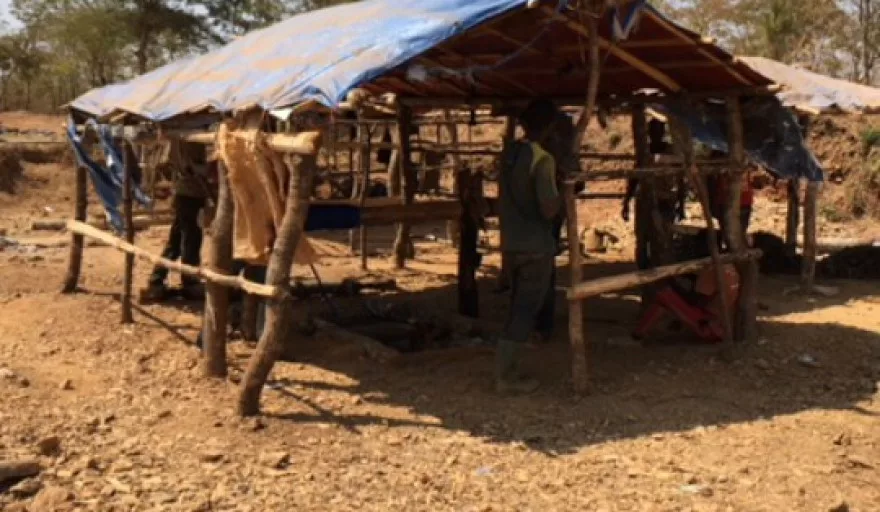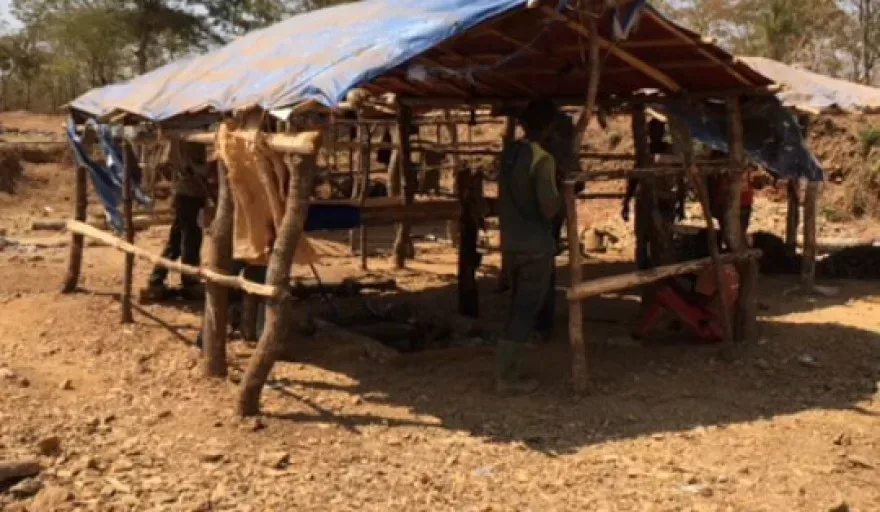
Wishbone Gold Plc started life as a gold exploration company focused on identifying and developing precious metal assets, mainly in Australia. Still in possession of four gold exploration licences covering 34,700 hectares in northeast Queensland – a region known for significant precious metal mineralisation – the business’s rise to prominence has been quick and relatively seamless; virtue of an approach that places special emphasis on and preservation and societal enrichment.
“In 2016 we announced the acquisition of Black Sand FZE, to enable us to offer a secure supply chain through the UAE from mining to trading,” introduces Wishbone Gold Plc Chairman, Richard Poulden. “Since then we’ve focused on increasing our partnerships with artisanal miners across the world, and particularly in Africa, South East Asia and Central America. This reverse integration strategy is now the core of our business.”
Africa Outlook caught up with Poulden to discuss not only the Company’s mining acumen, but how Wishbone is looking to address agricultural concerns through its movement into global markets.
Richard Poulden (RP): It’s still early days, but the reverse integration strategy being rolled out globally is showing great promise. Work has already started, and now in our newest venture in Thailand, we are seeing fast results. We’ve worked with a local Thai partner and have set up a new entity, Asian Commerce and Commodities Trading (ACCT). This puts the trading element in the country firmly in place.
Early in February ACCT sent a shipment of gold from Thailand to the Wishbone centre of trading operations in Dubai. The purity of the gold received was assayed at 99 percent, and the volume of shipments is set to rise.
Wishbone has been steadily growing on an international scale since 2017 when we set up our inaugural Honduras site. Although we were delayed due to bad weather, with the region experiencing one of the worst hurricane seasons on record, this project has still proved to be a success for the Company, local community and the Honduran Government. We have now set our sights on Africa and with the help of consultant, Oliver Poole have begun operations in Uganda and Mali. There is also potential to grow in the East as we further our relationship with Thailand.
Africa Outlook (AfO): As you continue to expand, how important is it to ingratiate yourself into each new region, especially from an environmental persective?
RP: Location is key to the success of our model as it requires us to understand fully the local market and governance, and to provide easy access to the country location. It is also paramount that we work with suitable artisanal and small mines (ASM) that have the potential for increased production and teams that are willing to work with the Wishbone team and adhere to our policies surrounding taxation, legislation and environmental procedures.
The Board of Directors have a wealth of experience working in both the mining and natural resources sectors as well as in CSR. I am a keen environmentalist and work with and support various organisations working on conservation in Africa and worldwide. That work has proved to be a catalyst and a useful introduction for Wishbone’s work with ASMs. One of the pivotal issues with ASMs is the detrimental impact they have on the local environment. Our unique production model provides a direct solution to this issue with our carefully selected management teams implementing environmental standards in keeping with the local legislation.
AfO: Central to your success of course has been the key projects engaged in over the years, so can you firstly talk me through the landmark examples and your role within them?
RP: Before Wishbone I grew Sirius Minerals significantly through a similar strategy of acquisition. In other industries I have also followed a similar strategy building Alliance Medical and Wharfside Wine. It’s one that I believe works. But I’m proudest of my work in conservation with organisations such as the Wildfowl and Wetlands Trust, the David Shepherd Wildlife Foundation and the Giants Club, working to promote investment in conservation, business and tourism in Africa.
AfO: When identifying such projects, how do social and environmental impacts drive your approach and your lifecycle management; especially since turning your attentions to Africa?
RP: A clean, efficient site serves the artisanal miner well and it increases productivity for us. We insist on proper environmental controls and it’s a great additional benefit to what we do; increasing that productivity to encourage prosperity.
AfO: In what ways do you feel there is a shortfall in environmental/agricultural considerations among the mining industry at present and how do you feel that Wishbone Gold addresses these issues?
RP: Around 20 percent of gold production worldwide is produced by artisanal miners. In addition to this there is a further fringe of illegal miners across all sectors. It is this latter area that is the worst environmentally and where there needs to be a focus for change. It is important to realise that these are not all criminals; some of them are just trying to scrape a living because there are no jobs that they can go to. This is a major area where we can effect change.
AfO: What specific processes do you have in place to facilitate long-term environmental preservation and agricultural safeguarding?
RP: In some cases the mines we work with start out as unlicensed miners, and as such are unregulated. They simply have the goal to produce as much gold as possible regardless of the irreversible consequences some of their practices will have on the surrounding areas. Wishbone has set out to change this by bringing the better of these mines into the legal fold and insisting that if they want our help they have to have legal licenses. Once they obtain licences we also insist there will be: no mercury, no slash and burn, no destruction of the environment, and most importantly, they will have to pay taxes. This way, previously unregulated micro businesses can be brought into the regulated fold.
AfO: What kinds of ongoing collaborations have you formed with the local communities in which you work to compound this commitment to agricultural enrichment?
RP: By providing investment, modern equipment and updating mining techniques we can encourage greater efficiency and productivity. In some cases we can also reduce the size of the actual mine as production becomes more exact and processing is housed in specially-built units.
AfO: Looking forward, how would you hope your own impact on this issue will progress and what goals do you have in place to this end?
RP: We hope to increase the use of our model globally in order to improve the standards, ethics and production of ASMs. The goal for Wishbone is of course to increase production of gold from our sites for trading, however, we hope to change the artisanal sector and have it recognised as a legitimate source of the world’s gold.































